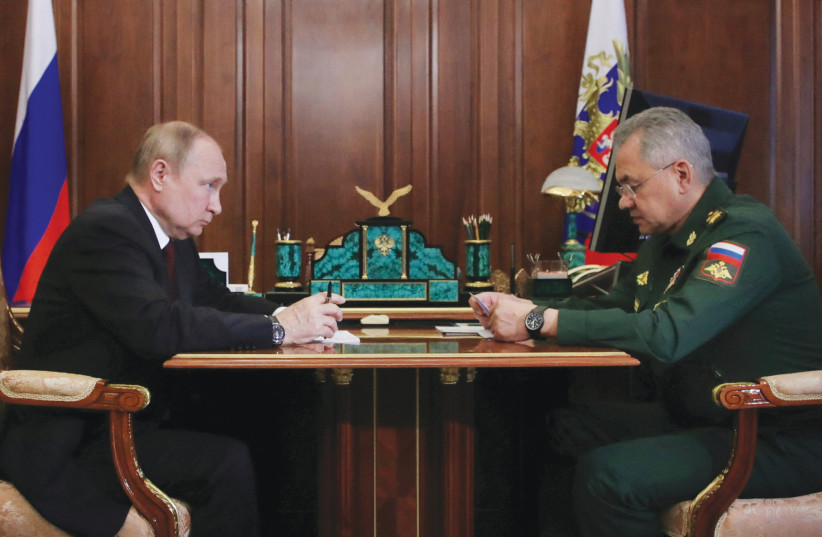Alexei Gorinov, the first man to be jailed under Russia's war censorship laws, was sentenced to three more years in a penal colony on Friday after being found guilty on new charges of "justifying terrorism."
Gorinov, a former district councilor in Moscow, was first convicted in 2022 of spreading false information about the Russian army after telling a council meeting that children in Ukraine were "dying every day" as a result of Moscow's invasion.
He was handed a seven-year jail sentence for that offense.
This week he went on trial again, accused of promoting terrorism in conversations with other prisoners, including about Ukraine's bombing of a bridge linking Russia to annexed Crimea.
The defense said the other inmates had tried to provoke Gorinov into making political comments during secretly recorded conversations, and that his remarks in any case had nothing to do with terrorism.

In a defiant final speech at the trial, Gorinov condemned what he described as Moscow's "slaughter" in Ukraine and the degradation of Russia's political system.
Reporters at the court in Vladimir, east of Moscow, said the judge had interrupted Gorinov's speech and declared a break in proceedings, but he continued to deliver it anyway.
"The third year of the war is ending, the third year of victims and destruction on European territory unseen since World War Two, the deprivation and suffering of millions of people. We cannot remain silent about this," he said.
The 63-year-old, who is in poor health, is one of the most prominent jailed dissidents still inside Russia following a big East-West prisoner swap in August that saw the release of others including opposition politician Vladimir Kara-Murza and human rights activist Oleg Orlov.
"Our government and those who support it in its militaristic aspirations wanted this war so much — and now it has come to our land. I want to ask them: has our life become better? Is this how you understand the wellbeing and security of our country and its population?" he said.
Dissent
Public protest against the war is rare in Russia, which has cracked down on any opposition to the Kremlin's policies with lengthy prison sentences. But dissidents such as the late Alexei Navalny have used their right to speak in court as an opportunity to express dissent.
Such statements often go unreported by Russian state media but are published on Telegram channels and by independent news outlets based outside the country.
The Kremlin does not comment on individual cases, but says Russia's courts are upholding the law against people engaged in subversive activity at a time of war.
Like Navalny, who died suddenly in a penal colony in February, Gorinov has had one sentence stacked on top of another based on a crime allegedly committed while already in prison.
"They are leading him through exactly the same stages as Navalny was previously," said Ilya Yashin, another of the leading opposition figures released in August.
Gorinov said he hoped his words in court would be heard around the world. Supporters in court applauded him as he was led away in handcuffs after the verdict.
